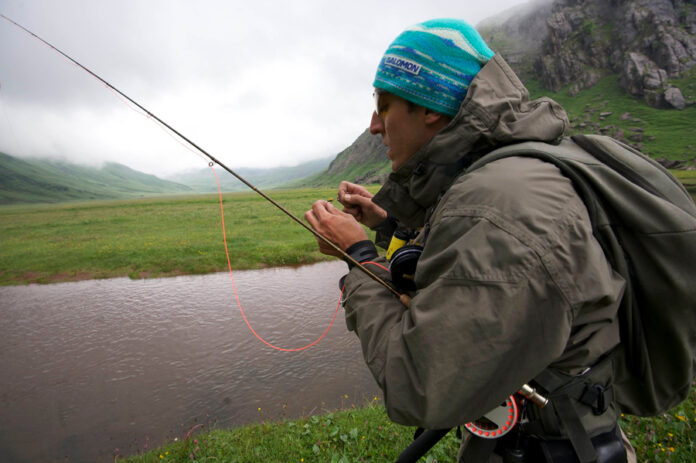Photo by Sandy Hays
Fly-fishing is such a process-oriented sport that it’s easy to become fixated on the specific task at hand—whether it’s drifting a dry fly along a fallen long or high-sticking a nymph rig through a riffle. But there are lots of other things an angler needs to pay attention to if he wants to be successful. How many times have you hooked and lost a fish, only to ask yourself, “When was the last time I checked that knot?” or “Why did the tippet break there?”
Here’s a brief checklist that every angler should run through periodically through the day.
- Hook Point (every 10 casts): Is it sharp? Did you remember to crimp the barb? Is the point still there, or did you break it off on a rock behind you?
- Fly (every 10 casts): Is it floating (or otherwise performing) as it should? Are all the parts still intact? Is there any schmutz (weeds, etc.) on it?
- Tippet (every 10 casts): Are there any bad nicks that might weaken the test strength? Any wind-knots? A lot of abrasion from running over rocks?
- Knots (every 10 casts): Do they look smooth and well tied? Give a little tug to check. And retie anything that looks suspicious.
- Ferrules (every 25 casts): Are they properly seated? Are the rod sections aligned?
- Fly Line (every 50 casts): Is it floating (or sinking) as it should? Are there any bad nicks in it?
- Wading Position (as often as it changes): Are you in a safe spot, or have you accidentally wandered into trouble? Is the water rising? Are there any obstacles (fallen logs, holes, boulders) that will make getting out of the water difficult? Are there any really dangerous features—sweepers, waterfalls, etc.–you need to avoid if you do slip and fall?
- Personal Health (hourly): Have you drunk enough water? Are you wearing enough sunblock? Are you warm or cool enough? Are your legs getting too tired to wade in fast water?
Failure to pay attention to any one of these things could result in a lost fish, a broken rod, or worse–a dangerous fall or health emergency. After awhile, this checklist becomes second nature, and you’ll find yourself automatically keeping all these failure points in mind. You’ll probably also find that you’re having a better, more successful time on the water.
Credit: Source link




























